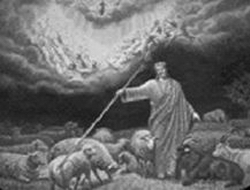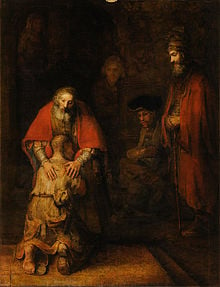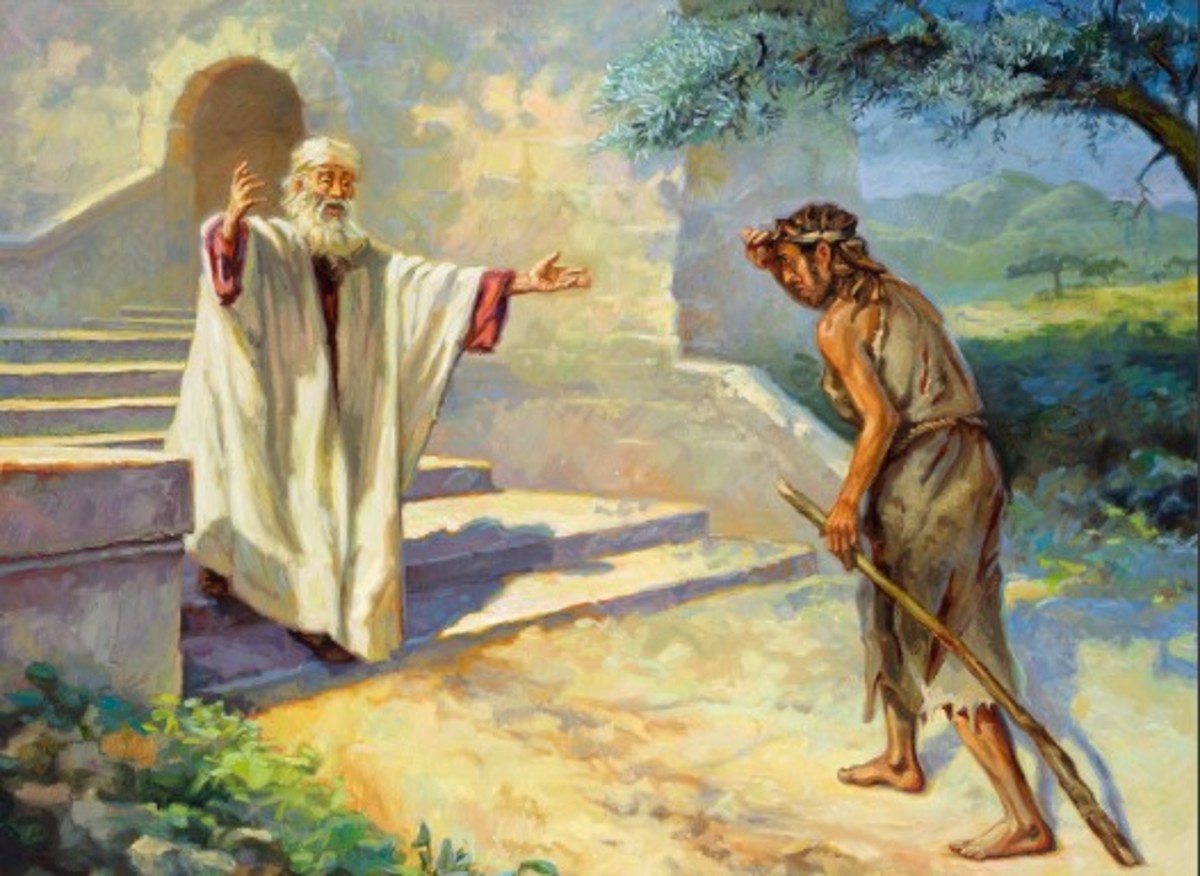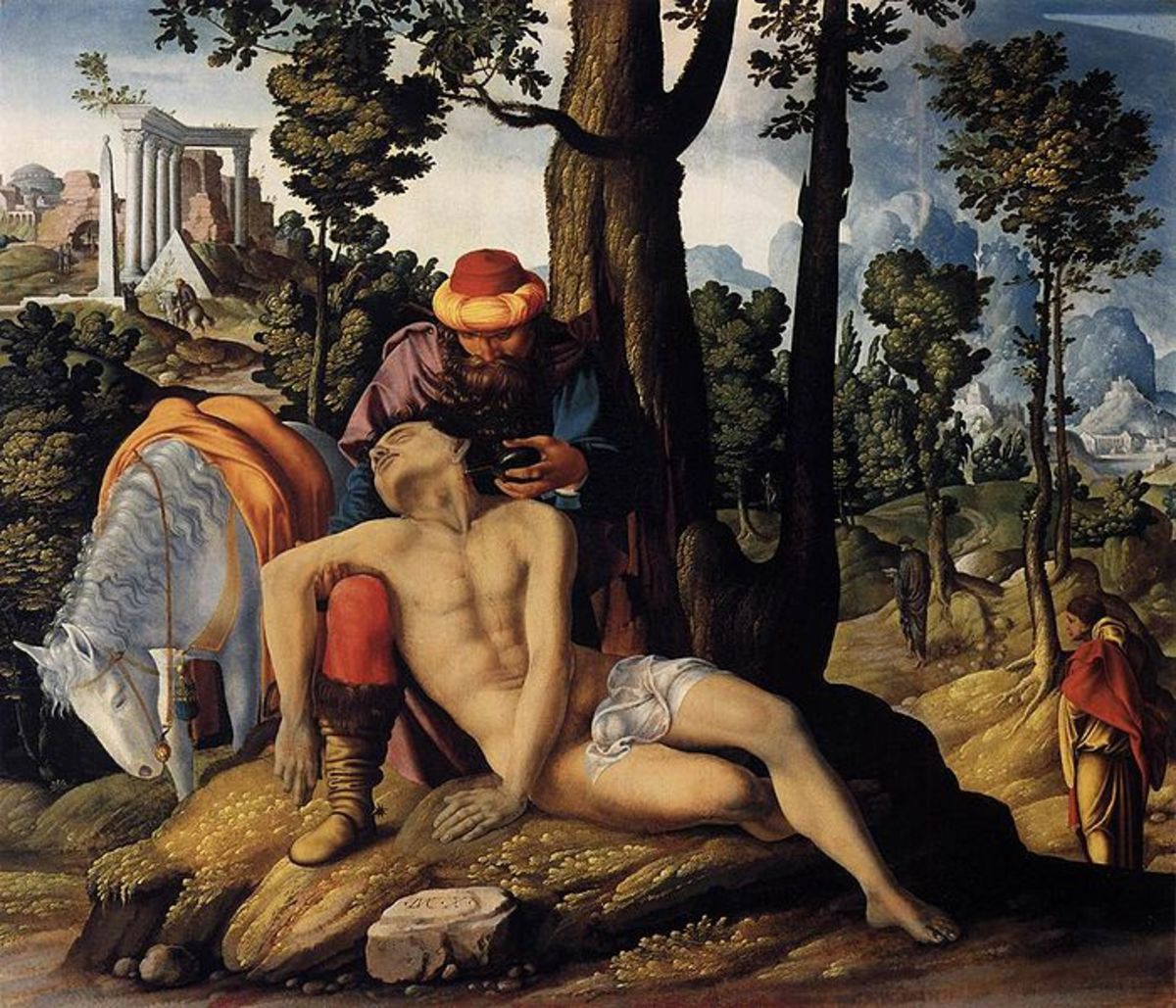Bible: What Does Luke 15 Teach Us About Mankind's Spiritual "Lostness"?
Tax Collector and Pharisee

Now Luke assembles four more parables—“The Lost Sheep” (vv. 4-7), “The Lost Coin” (vv. 8-10), “The Lost Son” (vv. 11-32) and “The Unjust Steward” (16:1-13).
The first three focus upon the concept of lostness, while the fourth concerns itself with right and wrong management of another’s goods.
These accounts Jesus directs toward two separate groups in His newest audience.
The first group—“tax collectors and sinners” (v. 1)—will benefit most from the first three stories, because they realize their spiritual lostness better than does the second group—“Pharisees and scribes” (v. 2).
All of Christ’s parables address everyone’s need, but His fourth story He directs toward the Pharisees especially, for He wished to warn them about their covetousness.
What makes the Lord’s teaching so appealing to the masses is His ability to compose short stories with heart-wrenching events that may happen to anyone, and reveal through them the universal truth about God’s love for sinners.
Such is the case with His “Parables of Lostness.”
The Shepherd and His Sheep

A comparison of the three with one another reveals their unitary nature; Jesus uses several structural devices to add to the triune story’s effectiveness.
First, the Lord proceeds methodically as He relates various circumstances in which something was lost: from the least valuable thing (a sheep) in the first story, to a thing of great sentimental worth (a coin) in the second, to the dearest possession (a son) in the last.
This approach increases the emotional impact of His discourse.
Second, He points out the worth of each object relative to the others by comparing their rarity: a man loses one of one hundred sheep (v. 4), a woman one of ten silver coins (v. 8; see NKJV apparatus for explanation of this drachma’s value), and a man one of his two sons (v. 11).
This detail also serves to focus the audience’s attention on the “Prodigal Son.”
Third, He hints that all three people expended considerable physical and emotional energy to recover their missing possessions.
The shepherd seeks for the sheep (v. 4), and carries it home once he finds it (v. 5); the woman sweeps the house and searches it carefully (v. 8), and the father fervently watches for his son’s return (presumably) every day (v. 20).
One may speculate that it took the shepherd only a short time to find his sheep, and the woman a day or so to locate her coin.
But the father certainly needed to wait many days for his son to return to him.
Once again, the emphasis remains on the third parable.
Fourth, Christ indicates that a celebration with friends took place after the lost thing or person had been found (vv. 6, 9, 22-24).
[Notice, however, that Jesus concludes His first two parables by remarking how joyful the angels in heaven become when one sinner repents (vv. 7, 10), but omits mentioning this happy event as occurring with respect to the third.
That fact still does not negate the story’s essential nature as a trinity of parables expressing God’s love for lost sinners.]
The Lost Son Returns

Salvation or Restoration?
Does this parable picture someone's salvation or merely his restoration?
“The Parable of the Lost Son” deserves additional commentary; its story-line powerfully elucidates the lost/found theme in an engaging fashion.
It begins with a son, the younger of two, demanding his portion of the inheritance from his father.
[Is it significant that the son is the younger one?
Is the father near death, or can the son simply not wait for that time?
In either case, it shows a selfish disrespect for his father.]
The father divides his “livelihood”; one would think he does this deed reluctantly, though the text does not say as much (vv. 11-12).
[What does Jesus mean by “livelihood”?
Had the father already made out his will, or did the son’s decision to leave force him to do so at that time?]
Christ’s reference to the time needed for the father to finalize this legal transaction (“And not many days after”) suggests the son’s impatience.
That the latter leaves nothing behind (“gathered all together”) and travels as far away from the old homestead as he could (“journeyed to a far country”) shows his intention to “go for the gusto” and “sow his wild oats” out of his father’s sight (“wasted his possessions with prodigal living”) [v. 13].
[At least he cared enough about his father’s reputation not to flaunt this wicked lifestyle close to home!]
The son took it “all,” and he spends it “all”; providentially, a famine leads the penniless profligate to feed swine at a local citizen’s pig farm (vv. 14-15).
[Jesus does not say that God purposely sent a famine, but He surely implies this fact.
As His love prompts Him, the LORD operates behind the scene to rescue His child.]
Standing now in a powerless position and on the verge of starvation, the son finds himself seemingly lower on the food chain than the despised pigs he was feeding (v. 16).
Verse seventeen records the key to the son’s recovery: “he came to himself.”
Beginning to think rationally again, his “instinct for survival” having kicked into high gear, the son realizes his need to return humbly to his father, confess his sin “against heaven and before you,” and with due respect ask him for a job as a servant (vv. 17-19).
While still “a great way off” from his father’s estate, the returnee encounters his ebullient parent who apparently had been searching the horizon for the figure of his long-lost boy and had run out to welcome him home (v. 20).
[Just how far off was he?]
Seemingly ignoring his son’s carefully practiced confession (v. 21)—he knows that “words” are unnecessary—the man commands his servants to deck out his son with all the appropriate accouterments and make preparations for a grand celebration, complete with feasting on the fatted calf (vv. 22-23).
What was the father’s reason for the party?
He has just received his son back alive from the lostness of “death” (v. 24).
[In Jewish culture, a family considers a son or daughter “dead” when he or she disgraces it by marrying out of the faith or by otherwise apostatizing.]
The Elder Son
view quiz statisticsThe Elder Son
Meanwhile, the elder son, returning from the field to the house, hears partying going on (v. 25).
At a loss for an explanation, he seeks out a servant who informs him about the safe return of his brother and the slaughtering of the fatted calf (vv. 26-27).
[The Jews prepared tender veal for special occasions.]
At this stage in the story, the reader learns about the elder’s need for an attitude adjustment.
Despite his father’s pleadings, he refuses to put aside his anger and attend the celebration (v. 28).
Finally, the elder explodes with pent-up anger and resentment toward his father as well as jealousy toward his brother.
For years, he explains, he had been trying to earn his father’s favor through hard work and absolute obedience, but the latter had never rewarded him by allowing him to have even a small party with his pals (v. 29).
His jealousy and hatred toward “this son of yours” manifest themselves when he accuses his brother of sexual sin without proof (“who has devoured your livelihood with harlots”) and when he whines that his father has rewarded the prodigal with grand festivities (v. 30).
The father graciously responds to the elder’s bitterness, addressing him as “son” and reminding him that he could have enjoyed a party with his friends if he had just asked him (“all that I have is yours”) [v. 31].
Rather than acceding to his elder son’s opinion that he is wrong for giving a party for his younger, once prodigal son, the father asserts the rightness of his action.
Everyone is celebrating the prodigal’s return to “life,” not his descent into darkness (v. 32).
© 2013 glynch1







